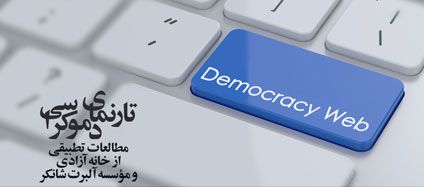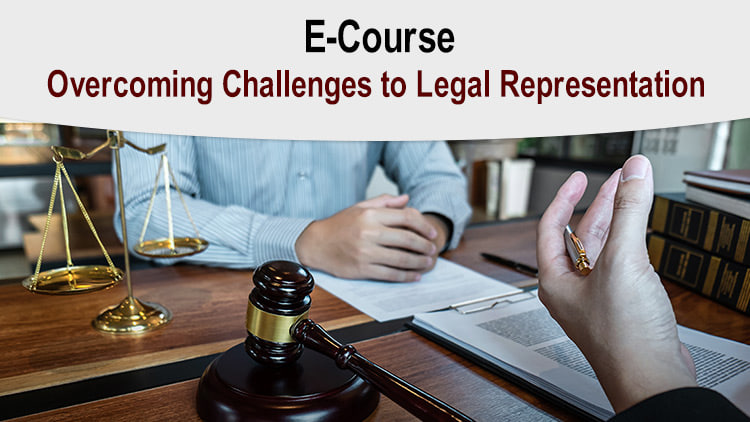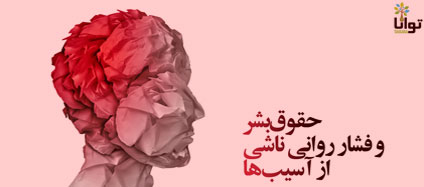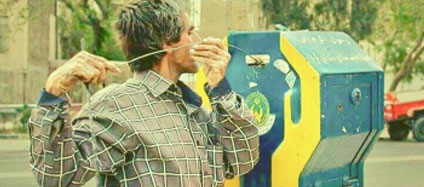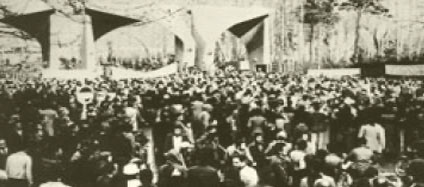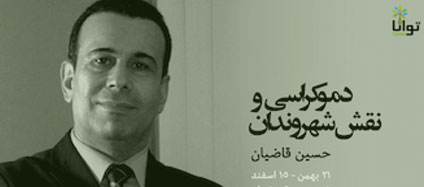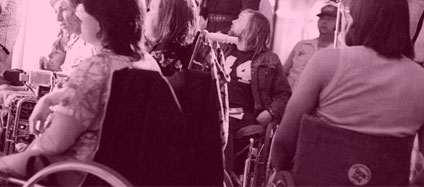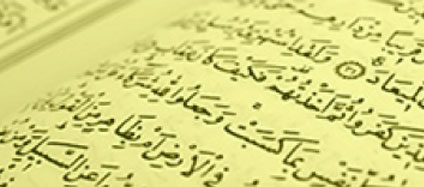Tavaana has translated Democracy Web, a civic education curriculum developed by the Albert Shanker Institute and Freedom House. Democracy Web is a study guide for use by teachers, professors, and their upper secondary and lower college-level students.
The curriculum offers an overview of the basic architecture of democracy, gives historical background information, and provides a framework for comparing the state of political rights and civil liberties in different countries around the world.
Through this comparative studies format, students are challenged to think critically about what makes a democracy and about the reasons for its ebb and flow in different regions and different eras.
Tavaana will offer a self-paced and instructor led version of the course. You can also read the Democracy Web curriculum here.
Course Outline
Tavaana PublicationClick here to download Tavaana’s exclusive translation of Democracy Web.
Democracy Web is a comprehensive civic education program offering an overview of the architecture of democracy, giving historical background information on different political systems while providing a framework for comparing the state of political rights and civil liberties in different countries around the world. Tavaana lecturer Mohammad Reza Nikfar challenges students to think critically about what makes a democracy. The Democracy Web curriculum was originally developed by Freedom House and the Albert Shanker Institute, and Tavaana has adapted the curriculum and translated it to Persian.
Mohammad Reza Nikfar is an expert on the history of political thought and the intersection of the Western canon with Iranian intellectual history. He published his first book, Erörterung des SatzesvomGrundbei Martin Heidegger, in 1997, followed by Violence, Human Rights and Civil Society in 1999. Mr. Nikfar has also published many articles on political philosophy and religion. Among his most notable writings are “Theology of Torture” (published in the Persian online magazine Nilgoon) and “Playing Chess with A Gorilla – Habermas in Iran.”
Lecture 1 – Democratic Theory and History
In this session, Mr. Nikfar opens with a discussion on the theory of democracy and its origins. Based on an understanding of democracy’s beginnings, the remainder of the class session focuses on the political history of democracy, from ancient times to the present day.
Lecture 2 – Democracy and the Modern State
In this session, Mr. Nikfar speaks about the development and spread of democracy in the modern age. The subjects focused on in this class include the government’s obligations to citizens, free and fair elections, the different systems of democratic governance, rule of law and citizens’ right to protest.
Lecture 3 – Power & Justice
In this session, Mr. Nikfar discusses ways to limit state power. By exploring political concepts such as power, pluralism, discrimination, and the interrelation of freedom and justice, you will be able to identify ways citizens can limit the power of their governments.
Lecture 4 – Accountability, Responsibility and Transparency
In this session, Mr. Nikfar discusses the different ways in which politics can be ethical, as he touches on topics such as a free press, government accountability and responsibility.
Lecture 5 – Freedom
In this session Mr. Nikfar opens with a discussion on how the concept of freedom has evolved throughout history, particularly during the European age of Enlightenment. From there, the conversation turns to the development of civil and political liberties that are enjoyed in democracies.
Lecture 6 – Universal Human Rights
What is a universal human right? How does cultural relativism affect the global perception of human rights? In this session, Mr. Nikfar discusses these questions by reviewing the basic rights that are guaranteed by the Universal Declaration of Human Rights.
Lecture 7 – Civil and Political Rights in a Closed Society
In this session, Mr. Nikfar discusses how citizens of closed societies such as Iran do not enjoy rights granted by the Universal Declaration of Human Rights. From there, the conversation turns to civil society and the role it can play in winning civil and political rights for the people.
Lecture 8 – Religion and Democracy
In this session, Mr. Nikfar discusses freedom of religion in the 21st century and how it is understood around the world. At the core of the conversation is the idea of secularism, and how the secularization of the state is a pre-condition for democratic rule.

